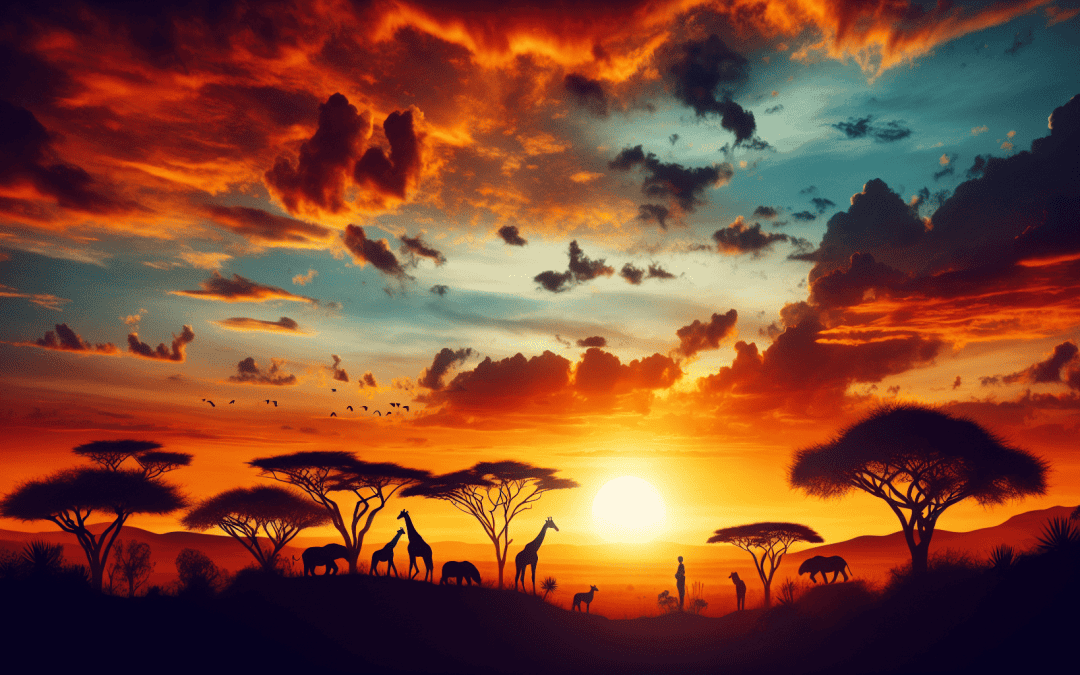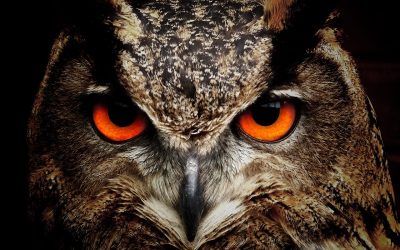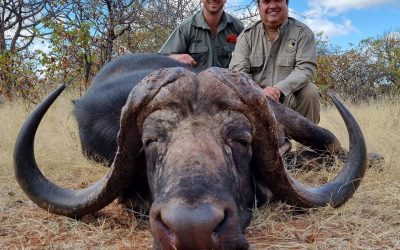So you’ve always dreamed of going on a thrilling hunting expedition in the wilds of Africa, but you’re not quite sure if it’s within your budget? Well, fret not, because in this article, we’ll be breaking down the cost of hunting in Africa, allowing you to get a clear understanding of what you can expect to spend. Whether you’re a seasoned hunter or a complete novice, the price tag on an African hunting trip may surprise you. So, gather ’round and let’s uncover the facts and figures behind this exhilarating adventure.
Factors Affecting Cost of Hunting
Hunting in Africa can be an exhilarating and rewarding experience, but it’s important to understand that the cost of such a trip can vary greatly depending on several factors. These factors can significantly influence the overall expenses associated with your hunting adventure. So, let’s take a closer look at some key elements that may affect the cost of your African hunting experience.
Location of the Hunt
The location of your hunt in Africa plays a crucial role in determining the cost. Different countries and regions have their own unique aspects and offerings, which can impact the pricing structure. Factors such as accessibility, the popularity of the area, and the abundance of game species can influence the cost of the hunt. Generally, more well-known locations tend to come with a higher price tag due to their established reputation and demand.
Type of Animal
The type of animal you wish to hunt also affects the overall expenses. Trophy fees for different species can vary significantly, with more sought-after and rare animals often carrying higher price tags. Animals with limited populations, such as elephants or rhinos, can have substantial conservation fees attached to their hunting permits, contributing to the increased cost. On the other hand, less iconic game species like impalas or warthogs may have lower trophy fees.
Duration of the Hunt
The duration of your hunting adventure is another crucial factor impacting the cost. The longer you plan to hunt, the more you can expect to pay. Accommodation, food, guide services, and other amenities are usually calculated on a daily rate basis. Therefore, extending your hunting trip will naturally lead to additional expenses in these areas.
Accommodation and Services
The type of accommodation and services you opt for can significantly influence the overall cost of your hunt. From luxury lodges to tented camps, African outfitters offer a range of options to suit different budgets and preferences. High-end accommodations often come with more luxurious amenities and personalized services, while budget-friendly options may offer a more rustic experience. It’s important to consider your comfort level and budget when choosing the type of accommodation for your hunt.
Licenses and Permits
Obtaining the necessary licenses and permits for hunting in Africa is an essential part of the process. These permits can vary in cost depending on the country and the specific game you wish to hunt. Government fees, conservation levies, and other administrative charges add to the overall expenses. The assistance of professional hunting outfitters is crucial in navigating the legal requirements and ensuring compliance with all necessary permits.
Average Costs of Hunting in Africa
Now that we’ve examined the various factors affecting the cost of hunting in Africa, let’s dive into the average expenses you can anticipate when planning your African hunting adventure. Understanding the breakdown of these costs can help you better plan and budget for your trip.
Trophy Fees
Trophy fees are perhaps the most significant expense when it comes to hunting in Africa. These fees are charged for the harvesting of each animal and vary depending on the species. Pricing can range from a few hundred dollars for smaller game species to several thousand dollars or more for large or rare animals.
Daily Rates
Daily rates encompass the cost of accommodation, meals, guide services, and other amenities provided by the outfitter. These rates are typically calculated per day and can vary depending on the level of luxury and services offered. The average daily rate in Africa can range from $250 to $1,000 or more, depending on the location and the outfitter.
Transportation and Logistics
Traveling to and within Africa can be a significant contributor to the overall cost of your hunt. Flights, transfers, and ground transportation expenses should be factored into your budget. Additionally, if your hunting area requires internal flights or charters, you can expect additional costs. Depending on your location, these expenses can range from a few hundred to several thousand dollars.
Taxidermy and Shipping
If you plan on bringing your hunting trophies back home, taxidermy and shipping costs should be considered. Preparing and mounting your trophies can be a lengthy and intricate process, often requiring the assistance of professional taxidermists. Shipping the trophies to your desired destination can also add to the cost. These expenses can range from a few hundred to several thousand dollars, depending on the number and size of your trophies.
Additional Expenses
In addition to the core expenses mentioned above, there are several other factors to consider that can significantly impact the overall cost of your African hunting trip. Let’s take a closer look at these additional expenses.
Travel Costs
Travel costs include airfare, visas, travel insurance, and any other expenses associated with your journey to and from Africa. Flights to popular hunting locations in Africa can range from a few hundred to several thousand dollars, depending on your departure point, the time of year, and the airline. It’s essential to research and compare different options to find the most cost-effective and convenient travel arrangements.
Preparation and Training
Preparing for your hunting adventure requires adequate training and preparation, which involves additional costs. This may include purchasing appropriate hunting gear, firearms, ammunition, and necessary garments for the African climate. Investing in physical fitness training, if required, can also be an additional expense. Ensuring that you are well-prepared both mentally and physically will contribute to a safer and more enjoyable hunting experience.
Insurance
Acquiring travel and medical insurance is essential when embarking on an African hunting trip. Insurance coverage can protect you against unforeseen circumstances, such as trip cancellations, medical emergencies, or lost gear. It’s essential to research and invest in comprehensive insurance coverage to provide peace of mind during your adventure.
Gratuities
Tipping is customary in the hunting industry and is an important aspect to consider when calculating the overall expenses. Showing appreciation to the professional hunters, guides, trackers, lodge staff, and other individuals involved in making your hunt successful is customary. While the amount is at your discretion, a general guideline is to allocate around 10-15% of the total hunt cost for gratuities.
Comparing Different Countries and Regions
Africa is a vast continent with diverse hunting opportunities spread across various countries and regions. Each location offers its own unique experiences, game species, and pricing structures. Let’s explore some of the key differences you might encounter when considering hunting in different parts of Africa.
Southern Africa
Southern Africa, including countries like South Africa, Namibia, and Zimbabwe, is known for its diverse hunting opportunities and well-established infrastructure. The availability of game is relatively high, making it an attractive destination for both first-time and seasoned hunters. Pricing in this region is typically more competitive compared to other parts of Africa, with a wide range of accommodations and services available to suit all budgets.
East Africa
East Africa, including countries such as Tanzania, Kenya, and Ethiopia, offers unique hunting experiences in more rugged and remote areas. This region is known for its iconic game species, such as elephants, lions, and buffalo. The cost of hunting in East Africa is generally higher compared to Southern Africa, partly due to the limited availability of permits for certain species and the higher trophy fees associated with them.
Central Africa
Central African countries like Cameroon and Central African Republic offer adventurous hunting experiences in dense rainforests and savannahs. This region is renowned for its forest-dwelling species like gorillas and bongo antelopes, which can be challenging to hunt. Due to the remoteness and logistical complexities associated with hunting in Central Africa, costs tend to be higher compared to other regions.
Hunting Packages and Special Offers
When planning your African hunting adventure, it’s worth exploring the various hunting packages and special offers available. Outfitters often provide package deals that combine multiple hunting opportunities or target specific game species. These packages can offer cost savings compared to booking individual hunts. It’s important to research and compare different packages to find the one that best aligns with your hunting goals and budget.
Package Deals
Package deals typically include a predetermined number of animals, days on the hunt, and accommodations. These bundled offerings can provide a more streamlined experience and often come at a discounted rate compared to booking individual hunts. They are an excellent option for those looking to maximize their hunting experience while keeping costs within a specific budget.
Discounted Hunts
Outfitters occasionally offer discounted hunts to fill gaps in their hunting schedule or as part of special promotions. These hunts typically involve specific game species or hunting periods and can provide an opportunity to hunt at a reduced rate. Keeping an eye on hunting forums, industry publications, and directly contacting outfitters can help you stay informed about any discounted hunting opportunities.
Planning and Booking Your Hunt
Planning and booking your African hunting adventure involves several essential steps to ensure a successful and enjoyable experience. Let’s delve into some key considerations when organizing and securing your trip.
Researching Hunting Outfitters
Thorough research is crucial when selecting a hunting outfitter in Africa. Look for reputable outfitters with a proven track record, positive client testimonials, and a commitment to ethical hunting practices. Gathering as much information as possible about the outfitter’s experience, staff, and hunting areas will help you make an informed decision. Engaging in discussions with knowledgeable hunters, attending hunting expos, and consulting with professionals in the field can provide valuable insights into the best outfitters for your desired game and location.
Budgeting and Financial Planning
Creating a budget for your African hunting trip is a critical step in the planning process. Consider all the expenses outlined earlier, including trophy fees, daily rates, transportation, taxidermy costs, and additional expenses. Understanding the full financial scope of your hunt will prevent any surprises and allow you to make informed decisions about your accommodations, desired game species, and hunting activities.
Booking Procedures
Once you’ve identified a preferred outfitter, it’s time to book your hunt. Reach out to the outfitter to inquire about available dates, pricing, and any specific requirements they may have. Familiarize yourself with the booking and payment procedures, as well as any cancellation policies. Signing a formal contract with the outfitter, outlining all the agreed-upon terms and conditions, will help protect both parties and ensure a smooth hunting experience.
Considerations for First-Time Hunters
For those venturing into African hunting for the first time, there are a few additional considerations to keep in mind. A successful and enjoyable hunt begins with making the right choices before embarking on your adventure.
Choosing the Right Outfitter
As a first-time hunter in Africa, choosing the right outfitter is crucial. Look for an outfitter with a strong reputation and extensive experience in facilitating hunts for beginners. A patient and knowledgeable outfitter will guide you through the process, provide valuable advice, and ensure your safety throughout your hunting journey.
Selecting Suitable Game
When hunting in Africa for the first time, it’s vital to select game species that align with your skill level and interests. Consult with your outfitter to determine which species are suitable for beginner hunters. Opting for animals that provide a higher probability of success will boost your confidence and help you develop as a hunter.
Preparing for the Hunt
Preparation is key to a successful hunt. Familiarize yourself with the hunting regulations and guidelines of the specific country and region you’ll be visiting. Practice shooting and honing your marksmanship skills to ensure accurate and ethical shots. Physical fitness is also essential, as hunting in Africa can be physically demanding. Regular exercise and conditioning will make your hunting experience more enjoyable and ensure you can fully immerse yourself in the adventure.
Ethical Aspects of African Hunting
African hunting is often surrounded by ethical debates. However, it’s essential to note that regulated hunting contributes significantly to conservation efforts and local communities. Understanding the ethical aspects of African hunting helps shed light on its positive impact and ensures responsible participation.
Conservation Fees and Programs
The revenue generated through hunting permits, trophy fees, and other associated fees contributes directly to conservation initiatives. These funds provide financial support for habitat protection, anti-poaching efforts, endangered species conservation, wildlife research, and community development. By paying these fees, hunters actively participate in funding and supporting sustainable conservation efforts in Africa.
Sustainable Hunting Practices
Ethical hunting in Africa adheres to sustainable practices that ensure the long-term viability of game species and their habitats. Strict quotas and regulations are put in place to prevent overhunting and ensure population sustainability. Professional hunters and guides play a critical role in promoting ethical hunting practices, such as selective harvesting, fair chase principles, and respecting the natural behaviors of the animals. These practices contribute to the overall health of wildlife populations and ecosystems.
Anti-Poaching Efforts
One of the most significant threats to African wildlife is illegal poaching. Well-regulated hunting plays a vital role in combating poaching activities. Hunting areas are often patrolled by professional hunters, guides, and anti-poaching teams, which act as a deterrent to illegal activities. The presence of responsible and ethical hunters contributes to the overall security and protection of wildlife populations by providing an added layer of surveillance and monitoring.
Personal Experiences and Testimonials
To gain a well-rounded understanding of what to expect from your African hunting adventure, it can be valuable to explore personal experiences and testimonials of both hunters and outfitters. Hearing firsthand accounts from those who have embarked on similar journeys can provide insights into the joys and challenges of African hunting. These stories can help you make informed decisions about your chosen outfitter, preferred destinations, and game species.
Hunter’s Perspective
Listening to the perspectives of fellow hunters who have experienced African hunting can offer valuable insights and tips. Through personal accounts, you can gain a better understanding of the overall hunting experience, the challenges faced, and the lessons learned along the way. Hunters often recount their encounters with the iconic species of Africa, the thrill of the chase, and the unique cultural experiences they encountered during their trips.
Outfitter’s Perspective
Hearing from outfitters and guides who facilitate African hunting adventures can provide a behind-the-scenes look at the industry. Outfitters often share their knowledge of game locations, hunting techniques, and tips for a successful hunt. Gaining insights into how outfitters approach conservation, their commitment to ethical practices, and their dedication to client satisfaction can help you make an informed decision when selecting an outfitter.
Conclusion
Embarking on a hunting adventure in Africa is a dream for many outdoor enthusiasts. However, it’s crucial to understand the factors that impact the cost, plan accordingly, and select the right outfitter. By considering factors such as the location, the type of animal, the duration of the hunt, and the required permits, you can budget and plan for a successful and memorable African hunting experience. Remember to prioritize ethical hunting practices, support conservation efforts, and respect the local communities and wildlife. With proper preparation and research, your African hunting adventure can be the experience of a lifetime.











